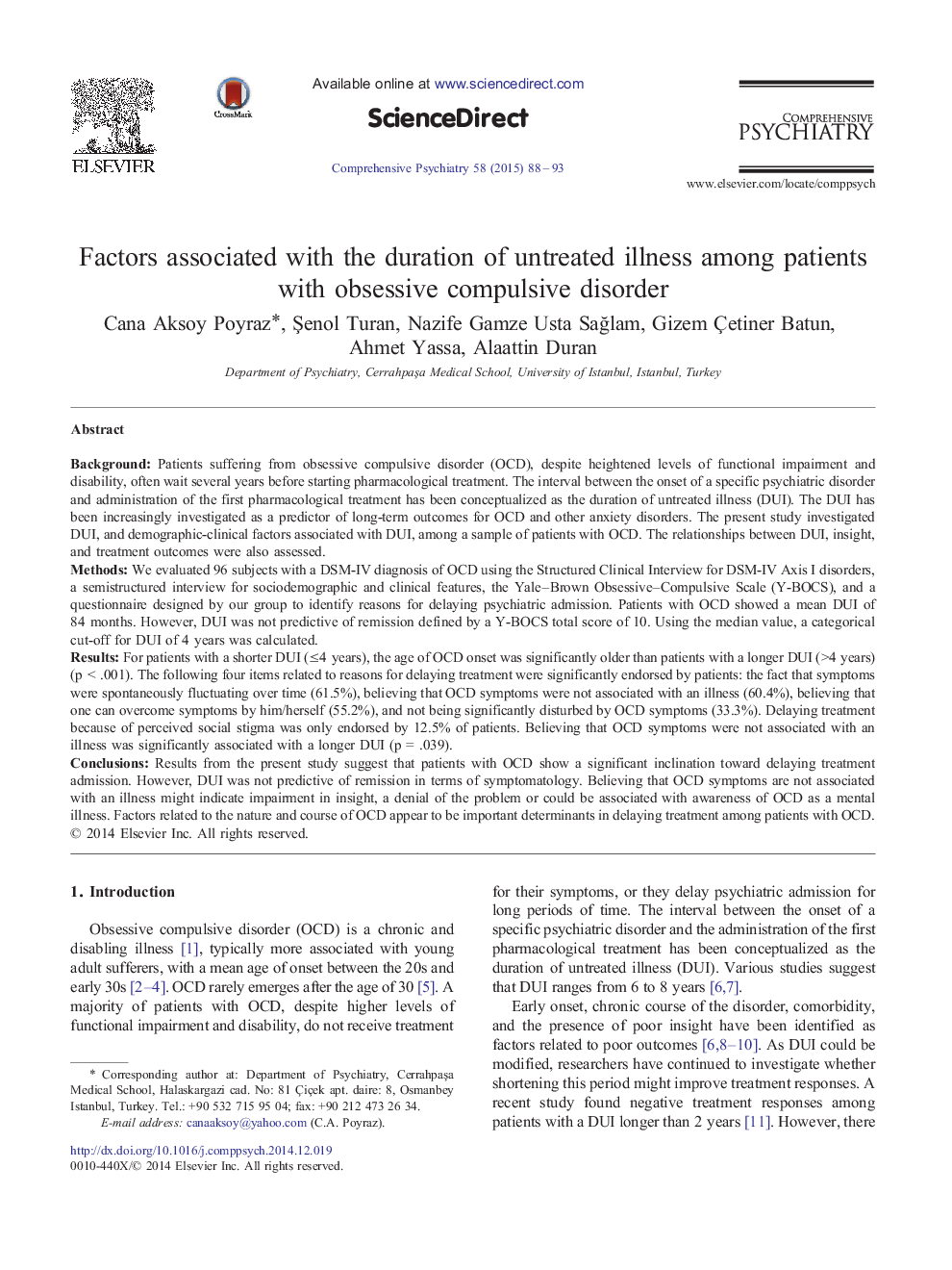| کد مقاله | کد نشریه | سال انتشار | مقاله انگلیسی | نسخه تمام متن |
|---|---|---|---|---|
| 317387 | 538163 | 2015 | 6 صفحه PDF | دانلود رایگان |
BackgroundPatients suffering from obsessive compulsive disorder (OCD), despite heightened levels of functional impairment and disability, often wait several years before starting pharmacological treatment. The interval between the onset of a specific psychiatric disorder and administration of the first pharmacological treatment has been conceptualized as the duration of untreated illness (DUI). The DUI has been increasingly investigated as a predictor of long-term outcomes for OCD and other anxiety disorders. The present study investigated DUI, and demographic-clinical factors associated with DUI, among a sample of patients with OCD. The relationships between DUI, insight, and treatment outcomes were also assessed.MethodsWe evaluated 96 subjects with a DSM-IV diagnosis of OCD using the Structured Clinical Interview for DSM-IV Axis I disorders, a semistructured interview for sociodemographic and clinical features, the Yale–Brown Obsessive–Compulsive Scale (Y-BOCS), and a questionnaire designed by our group to identify reasons for delaying psychiatric admission. Patients with OCD showed a mean DUI of 84 months. However, DUI was not predictive of remission defined by a Y-BOCS total score of 10. Using the median value, a categorical cut-off for DUI of 4 years was calculated.ResultsFor patients with a shorter DUI (≤4 years), the age of OCD onset was significantly older than patients with a longer DUI (>4 years) (p < .001). The following four items related to reasons for delaying treatment were significantly endorsed by patients: the fact that symptoms were spontaneously fluctuating over time (61.5%), believing that OCD symptoms were not associated with an illness (60.4%), believing that one can overcome symptoms by him/herself (55.2%), and not being significantly disturbed by OCD symptoms (33.3%). Delaying treatment because of perceived social stigma was only endorsed by 12.5% of patients. Believing that OCD symptoms were not associated with an illness was significantly associated with a longer DUI (p = .039).ConclusionsResults from the present study suggest that patients with OCD show a significant inclination toward delaying treatment admission. However, DUI was not predictive of remission in terms of symptomatology. Believing that OCD symptoms are not associated with an illness might indicate impairment in insight, a denial of the problem or could be associated with awareness of OCD as a mental illness. Factors related to the nature and course of OCD appear to be important determinants in delaying treatment among patients with OCD.
Journal: Comprehensive Psychiatry - Volume 58, April 2015, Pages 88–93
